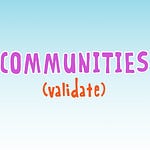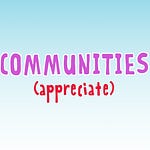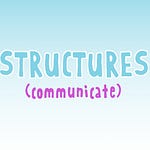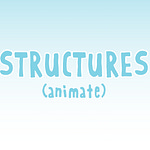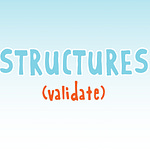Abbie: Hello and welcome to the CosmoParenting Podcast brought to you by the CMM Institute for Personal and Social Evolution. In this space, we invite you to see yourself as someone who is curious about and actively participating in creating your own meaning around parenting.
This is our ‘Validate’ episode, where in the second episode of each month we hear a parenting story, with the hope that sharing the first hand experiences of others who are parenting can make you feel seen and validated in your own experiences. Let’s begin.
*music*
Abbie: Today, I am joined by Ilene and her adult children, Matt and Erin. Hi, everyone. Thanks for joining me.
Matt: Hello. Thanks for having us.
Ilene: Hi, Abbie.
Erin: Hi.
Abbie: I'm really glad to have all of you here today. I'm excited to hear all your different perspectives. As you know, today we're talking about conflict and what we've said so far about conflict is that conflict can be constructive or destructive and conflict is composed of differing forces or needs. So just starting to develop maybe a little bit of a deeper, more nuanced understanding of conflict. So with that in mind, Ilene, you can kick us off and share your story about conflict.
Ilene: Thanks, Abbie. And thanks for leading this important topic because conflict is really complicated. And I think we all have a complicated relationship with conflict. It's not something we like seek or invite, but it happens. And I'm fortunate that my professional life is a situation where I work with groups. I work with people and organizations on teams. And I, part of what I do is help people look at what are the benefits of working through conflict.
And so I was able to bring that to my children when they were young and they would have play dates. And so part of my memory is- I'm thinking about a specific memory with Matt and a couple of friends that were over- where something happened and basically Matt called me in and I was able to sit them down and ask them to take a moment to listen to the other and take in their perspective, validate it so that they felt heard and then let them each of them have that opportunity to validate the other and hear the other.
Abbie: Matt and Erin what are your memories of how conflict was handled in your household?
Matt: Yeah, so I can jump in about this particular memory it's been one that stuck with me for a very very long time because I remember it just seemed like a response that was so straightforward. Where even though I was in like, I don't know, like elementary school, like first grade or something, I could still understand what's happening and how it helped. Like I remember my mom coming in and saying, okay, can one of you explain to the other, like, what you think happened?
And then asking the other person, like, okay, can you repeat back what you just heard? And then asking, do you understand how that may have made this person feel angry or sad? And then switching places and having the other person do that and it was just amazing to watch how just like it was really such a simple process. And like I understood- cool, okay so now they actually like are listening to each other. Of course, as an adult I definitely feel like I can understand a couple more layers to that and how it helps like the point that my mom was making around validation. And so it's something that has stuck with me for a very long time
Erin: I don't think I was there for that specific incident, but it definitely brings to mind just the way that also conflict between me and Matt was handled in our house too, that same kind of process of sitting down and listening to each other and being asked to reflect back what we were hearing.
And I spent several years as a classroom teacher with lots of different ages- I worked with elementary and middle schoolers and also with high schoolers in kind of different settings. And something that would often come up sometimes when you try to start that conversation and sit down two kids that have been in conflict with each other, they will just like reach for this script and just say, sorry. Not with any actual meaning behind it, but just knowing this is what I'm supposed to say to get me out of this situation.
And so when I would, kind of, employ some of those similar tools with kids and young people that I was working with, they'd sometimes get really frustrated first, right? When I would not let them just say sorry and leave. Especially when that apology didn't really seem to be sincere, but instead would ask them to actually try to hear each other and reflect back what it was that had caused the harm or caused the conflict or gotten them into that situation and try to think about how they could repair that with each other.
Abbie: Yeah, I'm thinking about how such an important part of the conversation around conflict is what happens after conflict, the repair, that that is just as much something that we are, I would say, generally not as equipped to handle. Ilene, I'm curious about what hearing your children's stories is making you think.
Ilene: One of the things I'm thinking about is I have a bias about my children, about Matt and Erin as adults, and they do really good, important work in the world, both in their day jobs and in their community work. And Erin, I think the piece that you just said is a really important piece to lift up, which is one of the lost opportunities with conflict is when we try to end it and move on prematurely.
If we don't really address the opportunity in the conflict thoroughly- and what I mean by the opportunity is to recognize what were the different assumptions we were coming into the situation with, what were the different expectations we were coming into the situation with- if we don't take that opportunity to mine that thoroughly and ask the question, is there more? Is there more? Is there more? Until you've really dug deep and addressed things, it will come up to haunt you later.
As I listened to Matt and Erin, I know of a lot of examples where they have intervened in our own family, not just in their work, in ways that just show great courage around dealing with conflict.
Abbie: Thanks for sharing that, Ilene. Matt, Erin, any last things you want to leave people with as we're reflecting on conflict today?
Matt: The amount of times where people I have been in community with have been like, how do you respond to this thing, this emotional disagreement that's come up? Everyone's like disagreeing with each other and there's no way they're going to come to an agreement on something.
It's like, that's not necessarily the goal. And that doesn't have to be the goal. And the amount of times that I've very intentionally just been in conversation and be like, yeah, I don't necessarily see it the same way as you, but I hear what you're saying. And I'm going to like say it back to you so you understand that I do hear what you're saying. It's really helped to like maintain and sometimes even just build deeper trust.
Abbie: Yeah, yeah, that makes sense.
Erin: The other thing that was coming to my mind as kind of a last thought was actually something that Matt and I were just talking about the other night when we were together, was that also like conflict itself is not the same as harm. That just because somebody disagrees with you and it maybe makes you uncomfortable or even like it's a little more than a disagreement and it even could come to an argument, it doesn't actually mean that they've done something to harm you or that you've done something to harm them.
And I think that connects to that idea that it's not like the only way to resolve it is to come to agreement.
Matt: Absolutely. And I also understand that this concept is something that has been normalized for me since I was seven in a way that probably hasn't been for everyone, being our mother's children.
Ilene: In this conversation, I've learned something from Erin and Matt. So I'm grateful for that, too. The piece around Erin talking about the temptation to just say, sorry. And the piece around conflict gets misunderstood sometimes as harm. And it's really about how do we go on from here, which is something we often say at the CMM Institute.
Abbie: Yeah, how do we go on? That's a great question for us to be asking. So thank you all for joining me and to everyone listening thank you for joining us too. Don't forget to check out www.cosmoactivities.com for all our other resources in this series, all available for free. And please comment on this podcast episode on the CosmoParenting Substack. We're so grateful to be on this journey with you and we will see you next week to explore some parenting best practices.
*music*



